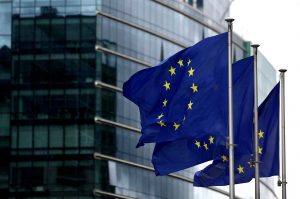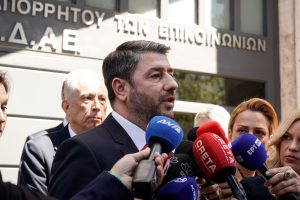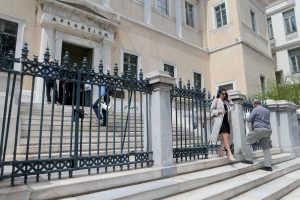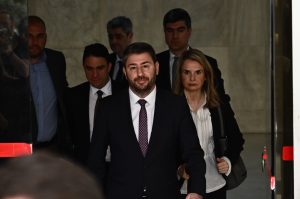“How is it possible that the entire wiretapping scandal, a case linked to the functioning of state and governmental institutions, to the Justice system, and ultimately to democracy itself, has been reduced to a misdemeanor for which only a few businessmen will ultimately be held to account?” This was the question raised yesterday by legal sources in response to the news that the case regarding the possible criminal responsibility of persons who served in any post position within the National Intelligence Service (NIS) has been shelved.
Especially when, according to the same sources, not one, not two, but 28 individuals—ministers, politicians, public officials, the Chief of the General Staff and high-ranking members of the Armed Forces, journalists and others—had completely coincidentally (?) been placed under surveillance by the National Security Service following the waiving of their right to privacy at more or less the same time their cellphones were hacked using Predator spyware.
So there are still a good many unanswered questions, even (especially!) now that the investigation has reached its end:
1. Does the whole wiretapping scandal really boil down to a simple misdemeanor breach of communications privacy? Did no evidence at all come to light for the felony of violating the personal data of—at the very least—28 dual targets—a felony which sources have indicated was originally included in the scope of the investigation?
2. Does all the evidence that has been gathered really support the bringing of criminal charges solely against the businessmen who have been summoned as suspects?
3. If, ultimately, all roads lead to these businessmen (who, it should be noted, denied any involvement in their testimony to the Deputy Prosecutor of the Supreme Court), did they choose the targets themselves, and if so on what criteria? Also, how can this possibly be squared with the fact that 28 of the targets were also surveilled by the NIS?
4. According to the Prosecutor’s conclusion on the issuing of prosecutorial orders to waive the right to privacy of communications, the letter of the law was strictly observed in every case. But can it seriously be argued it was a good thing that the President of PASOK, Nikos Androulakis, government ministers, the Chief of the General Staff, military officers and the former financial prosecutor, who handled extremely serious cases, were all placed under surveillance?
5. When the court experts who drew up the report after the surprise inspection at the NIS in the presence of the Deputy Prosecutor of the Supreme Court, Achilleas Zisis, didn’t so much as raise an eyebrow at the fact that one in four of those monitored was a joint NIS-Predator target, doesn’t this raise suspicions in itself of a common center managing both forms of surveillance?
6. Why, when the surprise inspection conducted at the NIS in the final stages of the investigation established beyond any doubt that joint surveillance was being conducted on certain individuals, were those whose cases had not already been examined not called to testify? And why were the victims who have filed motions to join the prosecution not given the time to submit their own written statements to assist the work of the Justice system?
7. Another question that has remained unanswered over the last two years is how much the Prime Minister’s Office knew—given that it had assumed the administrative supervision of the NIS, which it already oversaw politically, in 2019.
+1 And while these questions remain unanswered, there is one more question raised by legal experts that transcends the wiretapping case, as it relates to the finding that all the prosecutorial surveillance orders were lawful, even if the people directly concerned—which is to say, the targets—have no idea why they were considered to pose a national security risk. “The concern this case raises”, the same sources report, “stems from the window opened by this legitimization of all surveillance—without exception”.









